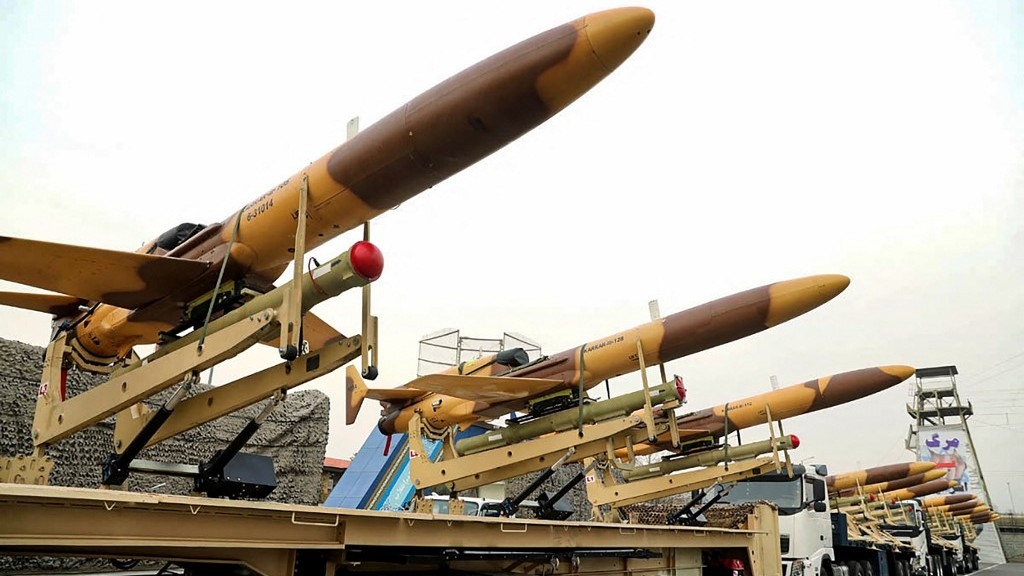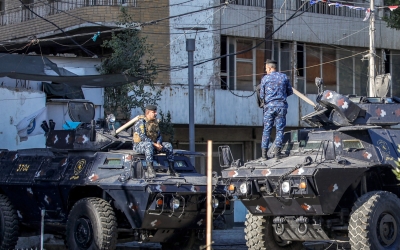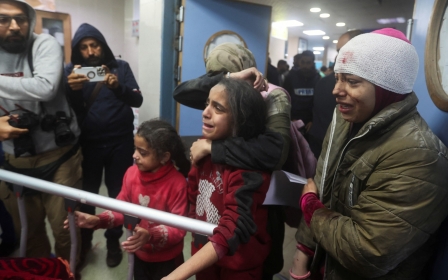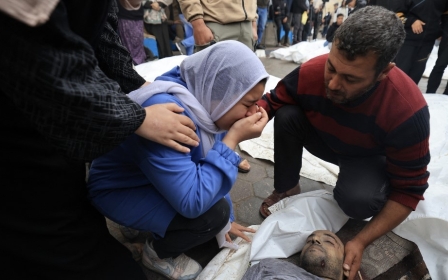War on Gaza: Former Israeli Prime Minister Naftali Bennett calls on US to bring down Iran

Former Israeli Prime Minister Naftali Bennett has called on the US to confront Iran in an article published by the Wall Street Journal on Thursday.
The editorial stopped short of calling for outright war, but came with a shopping list of demands Israeli far-right politicians want the US to fulfil to help Israel bring down what he calls “the evil empire of Iran".
Unlike Israel, which Bennett believes is a “thriving, free and strong democracy” promoting peace in the region, Iran is at the centre "of most of the Middle East’s problems,” he says.
“There are many ways to weaken Iran: empower domestic opposition, ensure internet continuity during riots against the regime, strengthen its enemies, increase sanctions and economic pressures,” says Bennett, adding that Israel needs the US to ensure these objectives.
In addition to calling for the US to help topple the Iranian state, Bennett gave details of the two strikes in the article, which Israel has never officially claimed responsibility for.
New MEE newsletter: Jerusalem Dispatch
Sign up to get the latest insights and analysis on Israel-Palestine, alongside Turkey Unpacked and other MEE newsletters
Bennett revealed that he directed Israel’s security forces to strike Iran on two separate occasions in 2022, in the article headlined: “The US and Israel need to take Iran on directly."
The first time Israel struck Iran under Bennett’s watch was in February 2022, when he authorised an attack against a UAV base on Iranian soil in response to two alleged failed drone attacks launched at Israel by Tehran.
In the second instance, in March 2022, Bennett says that he gave the go-ahead for security forces to assassinate a senior Islamic Revolutionary Guard Corps officer Hassan Sayyad Khodaei - though he didn’t mention him by name - after an alleged Iranian attempt to kill Israeli tourists in Turkey.
The Israeli attacks provoked an Iranian response in March 2022 in which ballistic missiles targeted Erbil, the capital of Iraq’s semi-autonomous Kurdistan region.
Follow Middle East Eye's live coverage of the Israel-Palestine war
At the time Iran’s Revolutionary Guard claimed responsibility for the attack. It alleged the missiles targeted Mossad sites in Erbil, saying Iran’s security and peace is a "red line" that no one is allowed to threaten.
At the time a senior Iranian official told Middle East Eye that the strike was a response to a drone factory in the northwestern Iranian city of Tabriz in February, which he said was launched from Iraqi territory.
Covert war
Over the years Israel has been linked to numerous strikes in Iran, primarily targeting the country’s nuclear program, but the country rarely publicly confirms its role in the attacks.
In January of this year, Iran reported a large explosion in the city of Isfahan which was caused by a failed drone attack on a military plant in the central city, according to authorities.
Tehran did not say who launched the attack against the plant but suspicion fell on Israel, which is also accused of starting a series of fires in industrial, military, and nuclear sites across Iran.
In 2021, Tehran vowed to seek revenge against Israel after it accused Tel Aviv of sabotaging the Natanz nuclear power plant.
Israel's war on Gaza has also resulted in increased regional tensions. On Wednesday, the Palestinian Health Ministry said the death toll from Israel's indiscriminate bombing had surpassed 21,000, most of them women and children.
Only limited amounts of aid have been allowed to enter Gaza since the beginning of the war, as Israel has imposed a total blockade on the area, including cutting off water and electricity supplies, causing severe shortages of water, fuel, food, and medicines.
The conflict in Gaza was triggered by the 7 October incursion by Hamas-led Palestinian fighters into southern Israel. The operation resulted in 1,140 people being killed.
Middle East Eye delivers independent and unrivalled coverage and analysis of the Middle East, North Africa and beyond. To learn more about republishing this content and the associated fees, please fill out this form. More about MEE can be found here.





